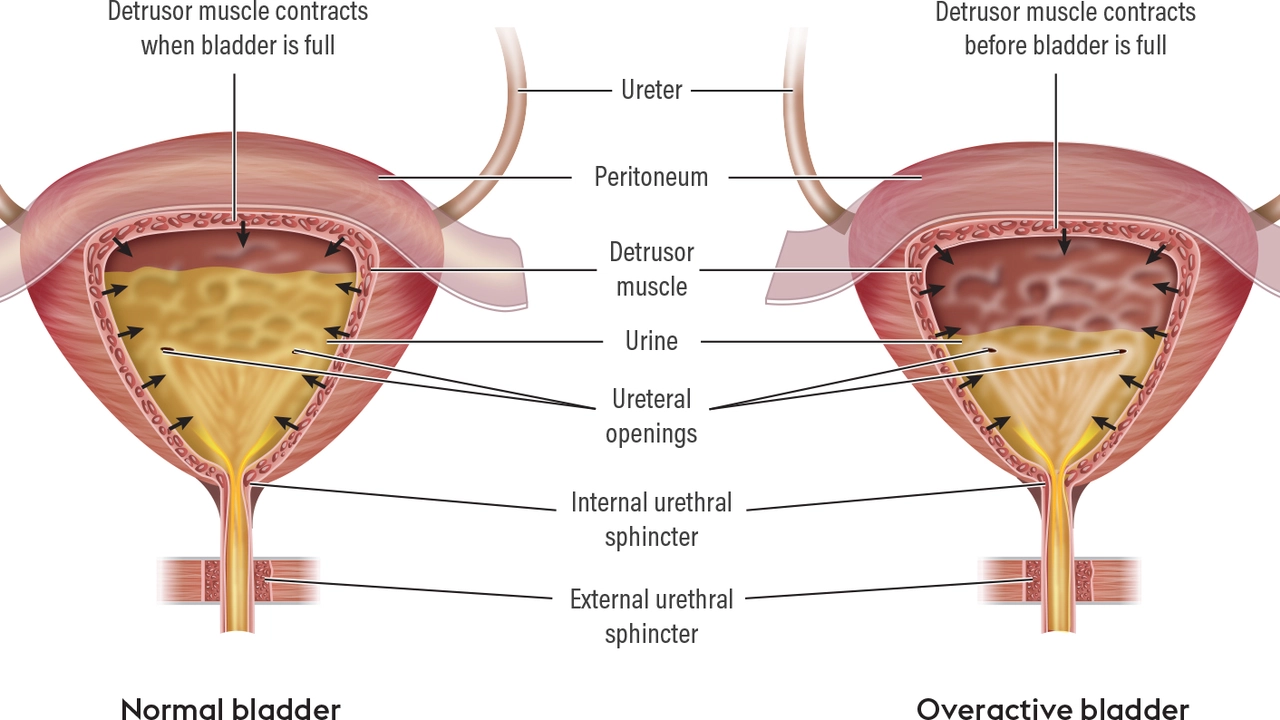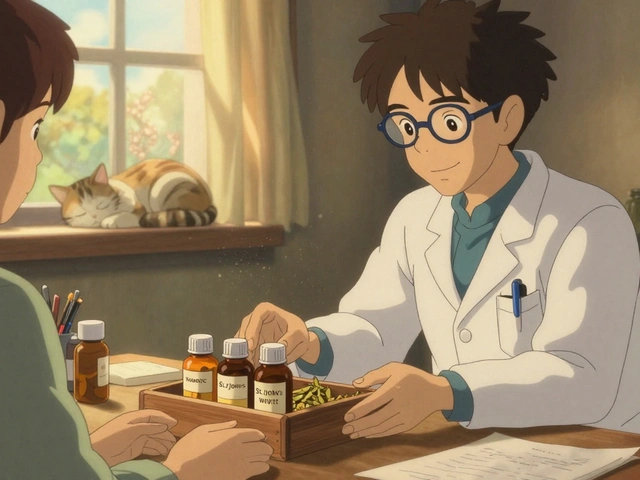
Understanding Overactive Bladder
Before diving into the importance of hydration for overactive bladder management, it is crucial to understand what an overactive bladder is. An overactive bladder, or OAB, is a condition where the bladder contracts involuntarily, leading to a sudden and urgent need to urinate. This can cause significant disruption to daily life, as it may lead to frequent bathroom trips, urinary leakage, and even the need to get up multiple times during the night to urinate.
There is no one-size-fits-all solution to managing OAB, and it's essential to work with a healthcare professional to develop a personalized treatment plan. However, staying hydrated is a crucial component of any OAB management strategy and is something that can be easily integrated into your daily routine.
Debunking the Myth: Drinking Less Water Equals Fewer Bathroom Trips
It's a common misconception that drinking less water will lead to fewer trips to the bathroom. While it may seem logical, this approach can actually worsen OAB symptoms. When you don't drink enough water, your urine becomes more concentrated. This concentrated urine can irritate the bladder, causing it to contract more frequently and worsen the urgency and frequency associated with OAB.
Moreover, concentrated urine can lead to other health issues, such as kidney stones and urinary tract infections. Thus, it's essential to maintain proper hydration to manage OAB symptoms and promote overall urinary health.
How Much Water Should You Drink?
There is no one-size-fits-all answer to how much water you should drink, as it depends on factors such as age, weight, activity level, and climate. However, a general guideline is to aim for at least eight 8-ounce glasses of water per day, or about 2 liters. This amount can be adjusted based on your individual needs and the guidance of your healthcare professional.
It's also important to remember that not all fluids are created equal when it comes to hydration. Beverages like caffeine, alcohol, and carbonated drinks can actually irritate the bladder and worsen OAB symptoms. Stick to water, herbal teas, and other non-irritating beverages for optimal hydration.
Spreading Fluid Intake Throughout the Day
When managing OAB, it's not just about how much you drink, but also when you drink. To avoid overwhelming your bladder, try to spread your fluid intake evenly throughout the day. This means drinking small amounts of water consistently, rather than consuming large quantities at once.
Additionally, consider limiting fluid intake in the evening to minimize nighttime bathroom trips. However, ensure that you're still drinking enough water throughout the day to maintain proper hydration.
Tracking Your Fluid Intake
Keeping track of your fluid intake can be a helpful tool in managing OAB. By monitoring how much you drink, you can ensure you're staying adequately hydrated while also identifying any patterns that may trigger OAB symptoms.
Consider using a water tracking app, a journal, or simply marking a water bottle to keep track of your daily fluid intake. Share this information with your healthcare professional to help tailor your OAB management plan.
Identifying Bladder Irritants
While staying hydrated is crucial for OAB management, it's also important to be aware of potential bladder irritants in your diet. Common irritants include caffeine, alcohol, carbonated beverages, artificial sweeteners, and acidic foods. These substances can stimulate the bladder, worsening OAB symptoms.
Try eliminating potential irritants from your diet and gradually reintroducing them to see if they impact your symptoms. This process can help you identify triggers and make more informed decisions about your fluid and food choices.
Exercise and Overactive Bladder
Physical activity plays a critical role in overall health and can help manage OAB symptoms. Regular exercise can strengthen the pelvic floor muscles, which are responsible for controlling the flow of urine. Stronger pelvic floor muscles can help reduce urinary urgency and leakage associated with OAB.
Stay hydrated during exercise to prevent dehydration, which can exacerbate OAB symptoms. Aim to drink water before, during, and after physical activity to maintain proper hydration levels.
Building a Support Network
Managing OAB can be challenging, both physically and emotionally. Building a support network of friends, family, and healthcare professionals can provide encouragement, advice, and understanding as you navigate your OAB journey. Don't be afraid to reach out for help and share your experiences with others.
Remember, proper hydration is only one aspect of a comprehensive OAB management plan. Work closely with your healthcare professional to develop a personalized strategy that addresses your unique needs and helps you regain control over your bladder.
5 Comments
Write a comment
More Articles

Why You Must Tell Your Doctor About Every Supplement and Herbal Remedy You Take
Most people don't tell their doctors about supplements, but this silence can lead to dangerous drug interactions. Learn why disclosing every herb, vitamin, and remedy is critical for your safety-and how to do it right.

Government Response to Drug Shortages: Federal Actions and Policy Shifts in 2025-2026
Federal actions to combat drug shortages in 2025-2026 focus on stockpiling active ingredients and regulatory tweaks, but fail to fix the root causes: manufacturing concentration, low profit margins, and weak reporting. Real solutions require economic reform, not just emergency reserves.

Revitalize Your Health with the Magic of European Mistletoe – Nature's Best-Kept Secret
In my latest blog, I delve into the sheer magic of European Mistletoe, nature's best-kept secret for revitalizing health. I was amazed to uncover a host of benefits from this humble plant, including boosting immune function and aiding in cancer treatment. I've also found out that it's been used for centuries in Europe for various medicinal purposes. It's incredible how this underestimated plant can be a game-changer for our well-being. So, join me as I explore and share the powerful benefits of the European Mistletoe for your health.

Emily Barfield
June 26, 2023 AT 22:35Hydration isn't just about water-it's about listening to your body's whispers before it screams at 3 a.m. with a bladder on fire! I used to restrict fluids like it was a detox challenge... until I started leaking through my pants at yoga. Turns out, diluting the poison (concentrated urine) is the only way to calm the storm. Now I sip herbal tea like it's a sacred ritual, and my bladder? It's practically meditating.